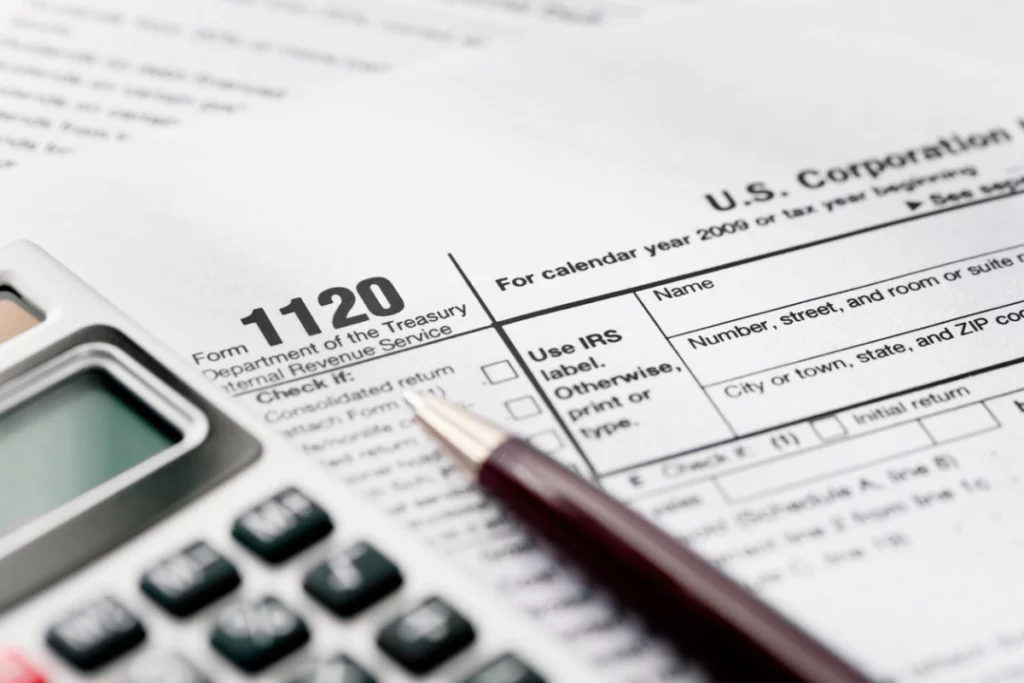
Navigating business tax filing deadlines is a critical part of running a successful business. From income taxes to payroll taxes, understanding what’s required and when to file your business returns can help you avoid costly penalties and interest. Staying on track with deadlines ensures compliance with tax laws and gives you peace of mind, allowing you to focus on growing your business. In this blog, we’ll cover the essential business tax filing deadlines, explain what business taxes are, and provide practical tips for staying organized and on top of your filings. Whether you’re a small business owner or managing a larger operation, this guide is here to simplify your tax filing process and keep your finances on track. For tailored tax planning services, be sure to explore our Business Tax Services in San Diego, California resources.
- Business taxes are taxes on the income or profits of a business, including income tax, self-employment tax, employment taxes, excise taxes, and other taxes.
- The form of business you operate determines what taxes you must pay and how you pay them.
- Business taxes are important for small businesses, as they help fund government services and infrastructure.
Understanding and adhering to tax filing deadlines is essential for maintaining compliance and avoiding costly penalties. Both federal and state governments impose specific deadlines based on your business structure, taxable income and tax obligations. Missing these deadlines can disrupt your cash flow and harm your business’s reputation.
Federal Tax Deadlines
The due dates for federal income tax returns vary based on the type of business entity you operate:
- Corporations: Calendar-year corporations must file Form 1120 by April 15, 2025. Fiscal-year corporations must file by the 15th day of the fourth month after their fiscal year ends.
- S Corporations: S corporations are required to file Form 1120-S by the 15th day of the third month after the close of their tax year. For calendar-year S corporations, this means filing by March 17, 2025.
- Partnerships: Partnerships must file Form 1065 by March 17, 2025, for calendar-year businesses.
- Sole Proprietorships: Sole proprietors report their business income on Schedule C, which is included with their individual tax return (Form 1040). The filing deadline is April 15, 2025.
- Limited Liability Companies (LLCs): The tax filing deadline for LLCs depends on how the business is taxed (e.g., as a sole proprietorship, partnership, or corporation).
State Tax Deadlines
State tax filing deadlines often align with federal deadlines but can differ based on specific state rules and regulations:
- Income Tax Deadlines: Most states require businesses to file state income tax returns by the federal due date. However, some states may have unique extensions or requirements, so it’s essential to verify deadlines specific to your jurisdiction.
- Sales and Use Taxes: Businesses that collect sales taxes must file returns monthly, quarterly, or annually, depending on their state’s requirements. Late filings may incur steep penalties and interest charges.
- Property Taxes: Local governments often impose property tax deadlines for businesses owning real estate or tangible personal property. Ensure these deadlines are factored into your tax calendar.
Additional Deadlines to Keep in Mind
- Payroll Taxes: Employers are responsible for filing payroll tax forms, such as Form 941 for federal employment taxes, on a quarterly basis. Deadlines are generally in April, July, October, and January.
- Information Returns: Forms like W-2s for employees and 1099s for contractors must be filed with the IRS and distributed to recipients by January 31 each year.
Failing to meet tax filing deadlines can result in severe consequences, including:
- Penalties and Interest: Late filing penalties can range from 5% of the unpaid taxes per month to a maximum of 25%. Interest accrues daily on unpaid taxes.
- Lost Opportunities: Filing late may lead to missed opportunities to claim deductions or credits, reducing your overall tax savings.
- Increased Scrutiny: Chronic late filings could flag your business for audits or additional reviews by tax authorities.
Proactively managing your business tax filing deadlines is key to maintaining smooth operations and avoiding unnecessary costs. Partnering with a local tax pro or a professional tax service like Gildark Financial Solutions Group can ensure you stay compliant while maximizing your tax efficiency. Whether it’s tracking deadlines or preparing filings, we help you focus on growing your business.
Navigating the complexities of filing business taxes can feel overwhelming, but with the right approach, you can streamline the process and ensure compliance. Whether you choose to work with a tax professional or handle it independently, preparation and expertise are key to a successful filing season.
Filing Options
Choosing how to file your business taxes depends on your needs and the complexity of your financial situation:
- Work with a Local Tax Professional: Whether in-office or remotely, collaborating with a tax pro provides tailored guidance for your business type, including S Corporations, C Corporations, and LLCs.
- Cost-Effective Expertise: Enjoy expert assistance at a cost up to 30% lower than typical accountants or CPAs, making professional services accessible for most businesses.
- Best for Various Business Structures: Professional tax filing is ideal for businesses of all types, ensuring accurate and compliant filings.
- Personalized Experience: Filing with a tax pro means your unique business needs are prioritized, offering peace of mind and reduced stress during tax season.
Getting Your Documents Ready
Proper preparation is critical for a smooth tax filing experience:
- Create a Tax Prep Checklist: A detailed checklist can help you stay organized and ensure nothing is overlooked. Include items such as income statements, expense records, and any applicable deductions.
- Know the Required Forms: Understand which forms apply to your business type (e.g., Schedule C for sole proprietors or Form 1120-S for S Corporations) to avoid delays or errors.
- Gather All Necessary Documents: Ensure you have essential records, including financial statements, W-2s, 1099s, payroll records, and receipts.
- Streamline Your Appointment: By arriving prepared, you can maximize the efficiency of your time with a tax professional and avoid the stress of last-minute scrambling.
A well-prepared filing process not only reduces the likelihood of errors but also helps identify tax savings opportunities. For personalized assistance with business tax filings, explore our website to ensure your business stays on track year-round.

Meeting business tax deadlines is crucial to avoiding penalties, interest, and unnecessary stress. Proactive planning and organization are the keys to staying compliant and keeping your small business taxes on track.
Set Reminders for Important Deadlines
- Use digital calendars, apps, or reminders to keep track of tax filing and payment dates.
- Include deadlines for federal, state, and local taxes, as well as estimated payments and extensions.
- Staying ahead of due dates reduces the risk of last-minute errors or missed deadlines.
Keep Accurate Records and Bookkeeping
- Maintain up-to-date and organized financial records, including receipts, invoices, and payroll data.
- Accurate bookkeeping ensures that tax filings are correct and minimizes the risk of audits or discrepancies.
- Consider using accounting software to simplify record-keeping and access information quickly.
Make Estimated Tax Payments on Time
- Avoid penalties by making quarterly estimated tax payments for income, self-employment, and other taxes.
- Work with a tax professional to calculate accurate payment amounts based on your earnings and deductions.
- Timely payments also help distribute your tax liability throughout the year.
File for Extensions if Needed
- If your business requires additional time to gather documents or resolve financial complexities, file for an extension before the deadline.
- Extensions provide up to six more months to file your return but don’t extend the time to pay taxes owed.
- Work with a tax pro to determine if an extension is the best option for your business.
Stay Organized and Focused on Your Business Goals
- Use checklists and planners to prioritize tax filing alongside other business operations.
- Delegate responsibilities to team members or professionals to ensure every task is handled efficiently.
- Staying organized allows you to focus on achieving your business goals without distractions.
At Gildark Financial Solutions Group, we specialize in helping businesses meet tax deadlines with confidence and accuracy. From tax preparation to filing extensions, we ensure your business remains compliant while maximizing your tax savings. Learn more about our Tax Planning Services in San Diego, California, and explore how we can support your financial success. Reach out today to stay ahead of your tax deadlines and streamline your processes!



